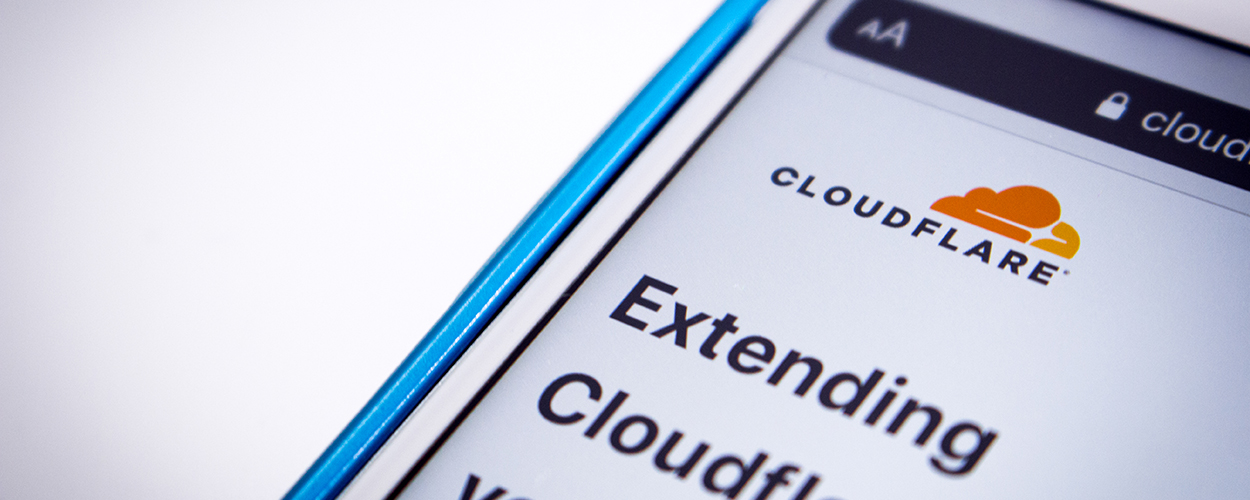This website uses cookies so that we can provide you with the best user experience possible. Cookie information is stored in your browser and performs functions such as recognising you when you return to our website and helping our team to understand which sections of the website you find most interesting and useful.
Business News CMU Digest
CMU Digest 13.11.22: Cloudflare, Vogue, YouTube, BBC, Attitude Is Everything
By Chris Cooke | Published on Sunday 13 November 2022

The key stories from the last week in the music business…
The Court Of Milan dismissed an appeal by Cloudflare, confirming that the internet firm’s DNS resolver is subject to a web-blocking order in Italy. Web-blocking – where courts order internet service providers to block access to copyright infringing websites – is an anti-piracy tactic of choice for the music industry. More recently there has been discussion as to whether web-blocking orders should also apply to other kinds of internet companies, including those DNS resolvers not operated by ISPs. DNS resolvers are a key part of the so called Domain Name System that allows people to browse the internet. Earlier this year, the record labels in Italy argued that a web-blocking order issued by Italian regulator ACGOM in relation to three piracy sites should also apply to Cloudflare’s 1.1.1.1 DNS resolver. Back in July an Italian court agreed with the labels’ position. Cloudflare then appealed, but this week the Court Of Milan upheld the earlier decision. [READ MORE]
A US court ordered Drake and 21 Savage to stop distributed a fake Vogue cover. The musicians had mocked up the cover, showing them as Vogue cover stars, as part of a marketing campaign for their new album ‘Her Loss’. That campaign involved creating an assortment of fake media coverage for the record and then sharing it on social media. With the Vogue cover, they also put up posters in various US cities and even distributed copies of the magazine with the fake cover added. The fashion title’s owner, Condé Nast, did not approve of the publicity stunt and demanded that Drake, 21 Savage and their communications agency Hiltzik Strategies cease and desist. But they did not, resulting in the media firm going legal. It quickly secured an injunction ordering the musicians and their agency to stop distributing the fake cover, delete all social media posts containing it, and destroy the posters and mocked up magazines. Condé Nast is also seeking damages for trademark infringement, unfair competition and false advertising. [READ MORE]
YouTube announced that it now has 80 million premium subscribers. Those are people subscribing to either YouTube Music specifically or the wider YouTube premium offer, which provides ad-free access to the entire YouTube platform. That means YouTube has added 30 million more paying subscribers since it last discussed its premium user numbers last year. The wider YouTube premium offer also includes access to the YouTube Music app, although it’s not known how many of those subscribers actually interact with the standalone music service. Nevertheless, YouTube’s Head Of Music Lyor Cohen said that the latest stat brag was super relevant to the music community, stating: “Alongside our music industry partners, we’ve been working hard to make YouTube the best place for every fan and every artist, and today’s news marks a significant milestone in that journey”. He then added: “We’re not stopping here”. [READ MORE]
MPs announced that they will scrutinise the planned cuts to BBC local radio, which will also impact on the BBC Music Introducing initiative. Needing to cut its operating costs, the BBC recently announced that, for big chunks of the day, its network of local radio stations in England will start sharing programmes on a regional basis, meaning those local radio programmes will be less local. Meanwhile a single late night show will go out across the network. That will likely mean that the much acclaimed BBC Music Introducing scheme will no longer have local radio shows with presenters closely connected to each local music scene. The Digital, Culture, Media & Sport Select Committee in the UK Parliament confirmed this week that it will have a session to scrutinise the cutbacks next month. [READ MORE]
Accessibility charity Attitude Is Everything announced a new campaign to encourage UK festivals to improve access for disabled and deaf people at their events. The campaign has three main objectives: urging festival promoters to provide quality access information to disabled audiences at the point tickets go on sale; to integrate questions about access requirements into the artist booking process; and to implement practical changes to make festival workplaces and festival volunteering accessible to disabled people. The charity has various resources available to help festivals meet each of those objectives. The new campaign is supported by three other organisations: the UK’s Association Of Independent Festivals and Association Of Festival Organisers, and the British Arts Festival Association. [READ MORE]





